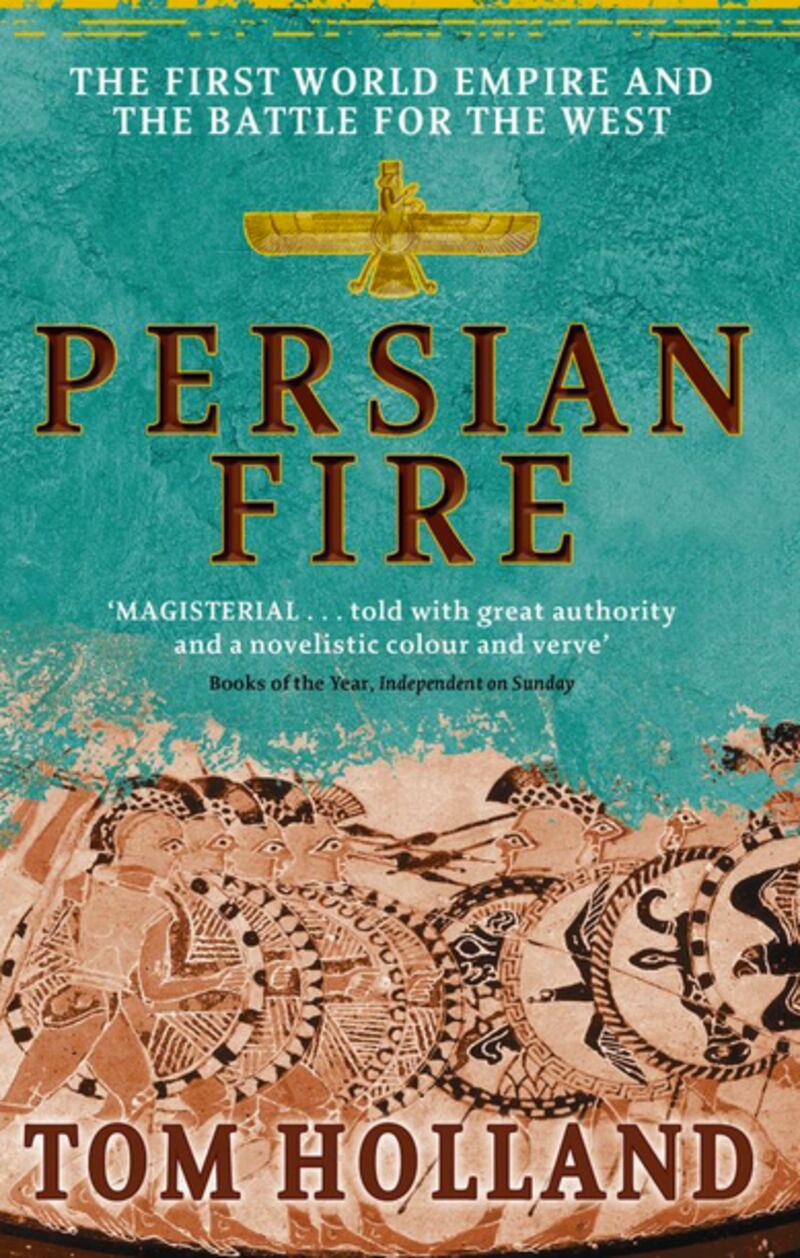
This is the third of a four-part review of Tom Holland's Persian Fire and Rubicon. Read part one here and part two here.
The efflorescence of creativity we call classical Greece originated - not with those who bested the Persians, the Spartans - but with the Athenians, who had seen their city occupied and burned. Famously relying on the advice of the Delphic oracle to seek refuge behind wooden walls, the Athenians had invested all their hopes in their new-built navy. At the battle of Salamis, that navy had entrapped and smashed the Persian fleet. Deprived of their command of the sea, defeated at the decisive land battle of Plataea, the Persians were forced to retreat. The initiative in the war now passed to the Athenian fleet, which followed the Persians back to Asia - and asserted dominance over the Greek islands in between.
These military actions had huge social consequences. Greek soldiers provided their own weapons, meaning that the weight of battle fell most heavily upon the most affluent citizens, who could afford the mass of bronze required to fight in the front ranks of a a phalanx. But no equipment was required to pull an oar, so all could do it - especially once the Athenian war leader, Themistocles, persuaded the Athenian assembly that oarsmen should be paid. The aristocracy's old claim for predominance in the state was abruptly discredited. Athens became the first society in recorded history in which all citizens (not women, not slaves, not resident foreigners) discussed and gave their consent to the measures of government.
That government levied tribute upon the new-liberated Greek islands. The tribute was originally designed as a revenue source to pay the wages of the oarsmen who kept the Persians away. But much of it was diverted to the rebuilding of Athens - and especially to the construction and decoration of the great war memorial we know as the Parthenon.
Athenian democracy can easily be over-estimated. The Athenians owned slaves, exploited subjects, and excluded women from public life. But these days, we are more prone to make the mistake of under-estimating that democracy. Never before since human beings emerged from hunter-gatherer bands had the leaders of the state ever much cared about the opinions of the poor multitude. Now suddenly a system of government had appeared in which leaders did.
The art works which still astonish the world were launched in part to give employment to the poor multitude. And as Athenians reviewed the astounding events and aftermath of the Persian wars, they began to ask in the most searching terms: how did we do these seemingly impossible things? And out of that habit of questioning were born the disciplines we now call history, philosophy, and science.
The "Persian fire" of Holland's title - the fire that burned Athens - is a fire that still lights the human mind.
- MORE TO COME-






